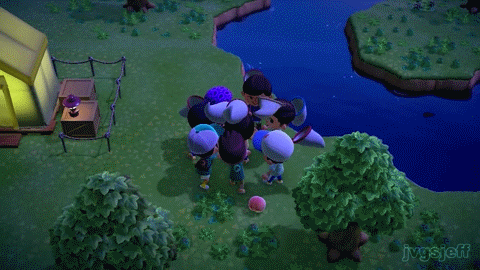For The Record While ATLA Is An Excellent Show And Zukos Redemption Arc Was Perfectly Paced, I Would
For the record while ATLA is an excellent show and Zukos redemption arc was perfectly paced, I would kill to have had Zuko join the Gaang at the end of book two, because the first half of book three would have been the funniest thing on the planet. Like. Just picture it. A bunch of unsupervised teenagers travelling undercover through enemy territory, trying to blend in… and the only people who have even been there before are 1. A guy who hasnt been there in a century, and 2. The former crown prince who has literally never spoken to a fire nation citizen who wasnt nobility, military, or one of his servants.
Like. Neither of them have any idea what they’re doing, or how normal fire nation citizens act, but they’re pretty sure the other one is wrong. Rest of the gaang knows even less. No adults. Zuko and Aang getting into a shouting debate over the finer points of fire nation culture is a nightly event. They are both so wrong, and so, so awkward
More Posts from Kasuminasai-blog and Others


(image description: a three panel drawing with very simple sketched lines and only a little quick coloration. it depicts a woman sitting at a desk, with a computer keyboard, musing aloud; "sometimes I wish my creative works would just make themselves...", after which she is startled by the arrival of a stick figure with a square head labeled "generative AI," which replies; "I can do that." the final panel is the only one with detailed color and lighting, showing the artist whipping out a pencil-shaped laser gun and exploding the AI entity. end description.)
had a conversation in a writing server, decided to make a meme about it.
A porcupine’s Halloween present (+ original sound effects)

watching gen z and millennials make fun of gen alpha has been torturous. "But they're actually stupid" 1. theyre middle schoolers 2. isn't that what older gens said about us? don't you remember being 11?
it truly is just "impulse reaction to cringe <- has not yet unlearned shame"
the cycle continues let me out of here
guys. guys I think we should kill cringe culture

me emitting a psychic blast killing everyone


of all the phrases we used to say in the 2010s era we need to bring back ‘what the hap is fuckening’ because honestly… what the hap is fuckening lately brother
PSA
It’s trans, not trans*
It’s trans men and trans women, not transmen and transwomen—trans is an adjective that answers “what kind of men/women"—cis works the same way
Never call trans men FTMs or trans women MTFs without their permission
Trans is short for transgender, it’s not plural for anything—trans person and trans people are both correct
Never use “born in the wrong body” or “used to be a boy and became a girl” or “biologically/genetically male/female”—all are just fancy ways to misgender someone (self identification with these phrases is different)
Transgendered is wrong, so is “a transgender” and “transgenders”
Being trans is not a sexuality nor is it a “sexual disorder” or any kind of disorder at all—gender identity disorder is not a real thing, and being trans isn’t a medical condition
“Transsexual” is generally considered an offensive term and should never be used to describe someone without their permission
Don’t refer to a trans person’s gender as their gender identity, it’s just their gender
Similarly don’t refer to their pronouns as “preferred pronouns"—they’re not preferred, they’re mandatory
Got a tiktok from a Canadian tourist here in Cabo who went to buy a swimsuit and thought it was going to be $500 pesos but it charger as $500 usd on her credit card and was all “Oh well I made an oopsie!”
And all the American/Canadian comments were like “Oh it happens! I did the same once! At least is cute!”
Meanwhile all Mexican comments were like “Go to PROFECO asap and fill a claim that shit is illegal and they should only charge you in pesos and have to respect the price in the tag if it doesn’t specify it in dollars” (it didn’t it only shows as $500)
Anyway FYI to any tourist coming to Mexico if the price doesn’t specify as usd it has to be charged in pesos by law.
They should not charge you in dollars, and if they do you can fill a claim to PROFECO about it.
PROFECO is like the only government agency in Mexico that does its job, take advantage of it.
20 Emotional Wounds in Fiction That Make Readers Root for the Character
Abandonment: Characters who have been abandoned by loved ones or caregivers can evoke sympathy from readers.
Betrayal: Being betrayed by someone close can create deep emotional wounds that make readers empathize with the character.
Loss of a Loved One: Whether through death or separation, the loss of a loved one can be a powerful emotional wound.
Rejection: Characters who experience rejection, whether in relationships or by society, can be relatable and evoke empathy.
Abuse: Physical, emotional, or psychological abuse can create complex wounds that shape a character's personality and behavior.
Neglect: Characters who have been neglected, especially in childhood, can evoke sympathy from readers.
Failure: Experiencing a significant failure or loss can create emotional wounds that make characters more relatable.
Guilt: Characters who carry guilt for past actions or decisions can be compelling and evoke empathy from readers.
Shame: Feelings of shame can create internal conflict and make characters more relatable and sympathetic.
Injustice: Characters who have experienced injustice or unfair treatment can evoke strong emotions from readers.
Trauma: Characters who have experienced traumatic events, such as war or natural disasters, can be sympathetic and relatable.
Loneliness: Characters who feel lonely or isolated can evoke empathy from readers who have experienced similar feelings.
Fear: Characters who face their fears or struggle with phobias can be relatable and evoke empathy from readers.
Self-doubt: Characters who struggle with self-doubt or low self-esteem can be relatable and evoke sympathy.
Identity Crisis: Characters who are grappling with questions of identity or struggling to find their place in the world can be sympathetic.
Addiction: Characters who struggle with addiction can be complex and evoke empathy from readers.
Betrayal of Trust: Characters who have had their trust betrayed can be sympathetic and relatable.
Unrequited Love: Characters who experience unrequited love can be sympathetic and evoke empathy from readers.
Isolation: Characters who feel isolated or disconnected from others can be relatable and evoke sympathy.
Fear of Failure: Characters who struggle with a fear of failure can be relatable and evoke empathy from readers.
-
 willo-or-something liked this · 3 weeks ago
willo-or-something liked this · 3 weeks ago -
 turtleduckaraoke liked this · 3 weeks ago
turtleduckaraoke liked this · 3 weeks ago -
 charlenasaxen reblogged this · 3 weeks ago
charlenasaxen reblogged this · 3 weeks ago -
 goobaoo liked this · 1 month ago
goobaoo liked this · 1 month ago -
 kittydemon9000 liked this · 1 month ago
kittydemon9000 liked this · 1 month ago -
 hhover liked this · 1 month ago
hhover liked this · 1 month ago -
 vixiyne reblogged this · 1 month ago
vixiyne reblogged this · 1 month ago -
 thatsocialhermitoverthere liked this · 1 month ago
thatsocialhermitoverthere liked this · 1 month ago -
 laurelless liked this · 1 month ago
laurelless liked this · 1 month ago -
 dazehui liked this · 1 month ago
dazehui liked this · 1 month ago -
 that-one-satanic-tree liked this · 1 month ago
that-one-satanic-tree liked this · 1 month ago -
 octolingo-writes liked this · 1 month ago
octolingo-writes liked this · 1 month ago -
 peanut-with-wifi-access reblogged this · 1 month ago
peanut-with-wifi-access reblogged this · 1 month ago -
 lovedmei reblogged this · 1 month ago
lovedmei reblogged this · 1 month ago -
 sea-pearl liked this · 1 month ago
sea-pearl liked this · 1 month ago -
 sleepdeprivedwyvern liked this · 1 month ago
sleepdeprivedwyvern liked this · 1 month ago -
 tydy-the-megnet reblogged this · 2 months ago
tydy-the-megnet reblogged this · 2 months ago -
 macygracie liked this · 2 months ago
macygracie liked this · 2 months ago -
 son-of-the-antlered-ones liked this · 2 months ago
son-of-the-antlered-ones liked this · 2 months ago -
 lord-kovtrashcan liked this · 2 months ago
lord-kovtrashcan liked this · 2 months ago -
 riotwizard reblogged this · 2 months ago
riotwizard reblogged this · 2 months ago -
 trust-me-i-just-get-weirder reblogged this · 2 months ago
trust-me-i-just-get-weirder reblogged this · 2 months ago -
 ethereallyoccultazalea reblogged this · 2 months ago
ethereallyoccultazalea reblogged this · 2 months ago -
 ethereallyoccultazalea liked this · 2 months ago
ethereallyoccultazalea liked this · 2 months ago -
 remixsandwich reblogged this · 2 months ago
remixsandwich reblogged this · 2 months ago -
 miscellania reblogged this · 2 months ago
miscellania reblogged this · 2 months ago -
 asuperscienceguy reblogged this · 2 months ago
asuperscienceguy reblogged this · 2 months ago -
 asuperscienceguy liked this · 2 months ago
asuperscienceguy liked this · 2 months ago -
 obscurenoodles liked this · 2 months ago
obscurenoodles liked this · 2 months ago -
 majorastransmasc reblogged this · 2 months ago
majorastransmasc reblogged this · 2 months ago -
 daagloren liked this · 2 months ago
daagloren liked this · 2 months ago -
 nightfury-fury reblogged this · 2 months ago
nightfury-fury reblogged this · 2 months ago -
 nightfury-fury liked this · 2 months ago
nightfury-fury liked this · 2 months ago -
 psynom liked this · 2 months ago
psynom liked this · 2 months ago -
 esthelle-wanders liked this · 2 months ago
esthelle-wanders liked this · 2 months ago -
 eclectic-bby liked this · 2 months ago
eclectic-bby liked this · 2 months ago -
 sim1soda liked this · 2 months ago
sim1soda liked this · 2 months ago -
 swedishsatan reblogged this · 3 months ago
swedishsatan reblogged this · 3 months ago -
 swedishsatan liked this · 3 months ago
swedishsatan liked this · 3 months ago -
 zzz-doodles liked this · 3 months ago
zzz-doodles liked this · 3 months ago -
 ceramicbirb reblogged this · 3 months ago
ceramicbirb reblogged this · 3 months ago -
 ceramicbirb liked this · 3 months ago
ceramicbirb liked this · 3 months ago -
 wordsmith-the-timelord liked this · 3 months ago
wordsmith-the-timelord liked this · 3 months ago -
 submerged-in-stories liked this · 3 months ago
submerged-in-stories liked this · 3 months ago -
 the-ginger-is-loose-again reblogged this · 3 months ago
the-ginger-is-loose-again reblogged this · 3 months ago
